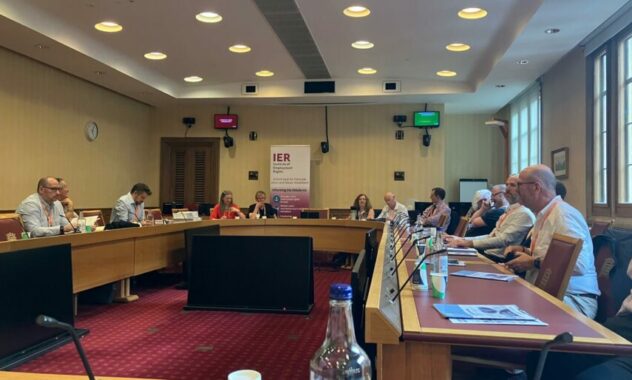Unions frustrated at the Government’s Civil Service Pay Remit Guidance limiting pay rises to 3.25%
The announcement comes just a day after the Office for National Statistics said inflation in the year to April was 3.5%.

Civil service unions have reacted with frustration after the Cabinet Office published pay-remit guidance limiting departments and agencies to an overall 3.25% increase in average pay for staff this financial year.
The Civil Service Pay Remit Guidance 2025 to 2026 allows government departments to make average pay awards up to 3.25% with an additional 0.5% available to address low pay, target needed skills and incentives for those who contribute towards a so-called ‘productive and agile state’.
Parliamentary Secretary to the Cabinet Office Georgia Gould has published a Written Ministerial Statement confirming the government’s decision to accept the recommendations of the Senior Salaries Review Body (SSRB) – that all members of the senior civil service should receive a 3.25% increase.
In response, FDA Assistant General Secretary Lauren Crowley said:
“Whilst we welcome the decision of the government to honour the recommendations of the pay review bodies and we recognise the constraints on public finances, this year’s civil service pay award falls short of inflation and is one of the lowest across the entire public sector. Once again, we’re tinkering around the edges of civil service pay because the government has failed to grasp the nettle of fundamental reform.
This government has set out its ambition to rewire the state, yet by refusing to address the long term and systemic issues within civil service pay, they are compounding the challenge of recruiting and retaining the talent needed in areas such as digital and artificial intelligence to deliver the government’s own agenda.
While pay in rest of the public sector, including the senior civil service, is driven by recommendations made by pay review bodies, the decision on pay for the majority of civil servants is a political choice. This is a choice made solely by ministers who deliberately ignore all of the evidence highlighting how civil service salaries continue to fall behind comparable jobs.
This is why the FDA continues to call for an independent pay review body for all civil service grades, which will depoliticise civil service pay and prioritise long-term reform and delivery.”
Meanwhile, Public and Commercial Services (PCS) union general secretary Fran Heathcote said:
“While we have shifted the government in talks from its original proposal of 2.8%, we’re disappointed with the headline figure of 3.25% as inflation hits 3.5%.
With increasing pay compression at lower paid grades, the 0.5% extra allocated to address low pay is derisory when tens of thousands of civil servants are paid at or barely above the minimum wage.
Civil servants deserve a fair pay rise and PCS will continue to make that case in negotiations.
Our National Executive Committee will meet shortly to considered our response and to determines our forward strategy.”







